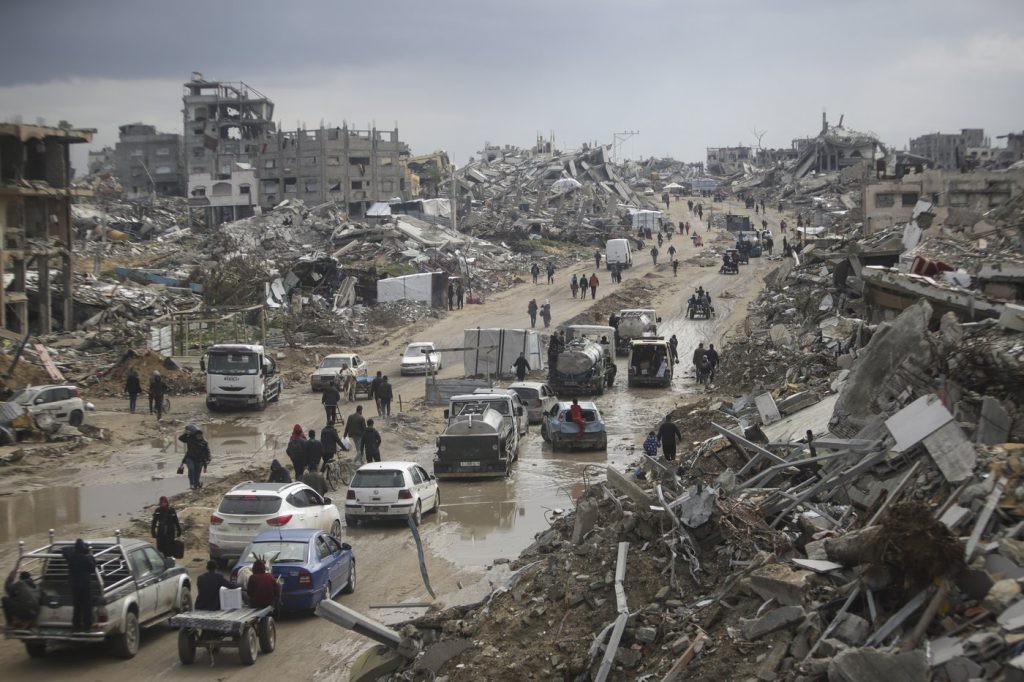DEIR AL-BALAH, Gaza Strip (AP) – In a significant development, Hamas-led militants are scheduled to release three Israeli civilian hostages on Saturday. In return, Israel is set to release dozens of Palestinian prisoners as part of a fragile agreement that has paused hostilities in the Gaza Strip. This agreement represents the latest phase in the ongoing conflict that has seen tragic losses on both sides since the outbreak of war triggered by the Hamas-led attack on October 7, 2023.
The hostages to be released include Eli Sharabi, 52; Ohad Ben Ami, 56; and Or Levy, 34, all of whom were captured during the initial Hamas assault. The agreement is part of a broader ceasefire that runs until early March 2024 but could potentially complicate future negotiations. Former President Donald Trump's controversial proposal to deport the Palestinian population from Gaza was welcomed by Israel but has met with severe opposition from Palestinians and the international community.
This release marks the fifth exchange of hostages for prisoners since the ceasefire began on January 19, 2024. Already, 18 hostages and over 550 Palestinian prisoners have been freed. Under the terms of the ceasefire’s first phase, a total of 33 hostages and nearly 2,000 prisoners are expected to be released, alongside an increase in humanitarian aid to the devastated Gaza Strip.
Sharabi and Ben Ami were both abducted from Kibbutz Beeri, one of the areas hardest hit during the assault, while Levy was taken during the Nova music festival, where he had sought refuge. In exchange, Israel will release 183 Palestinian prisoners, including individuals serving life sentences for deadly attacks. These prisoners include both militants and those accused of being involved in various offenses, with ages ranging from 20 to 61.
The Palestinian perspective on these prisoners is complex; while Israel deems them as terrorists, they are often viewed as heroes by many Palestinians. The ongoing conflict has created a vast network of relationships around imprisonment, where nearly every Palestinian has a friend or family member who has been incarcerated. The issue of hostages remains contentious, with Hamas indicating reluctance to release more hostages without a permanent ceasefire and withdrawal of Israeli forces from Gaza.
As of now, more than 70 hostages remain in Gaza, and at least one-third are believed to have perished either in the initial attack or during their captivity. As negotiations for the second phase of the ceasefire are expected to commence, Israel maintains its commitment to dismantling Hamas’s influence despite the reassertion of Hamas’s authority in Gaza almost immediately following the ceasefire.
Among the notable Palestinian prisoners being released is Iyad Abu Shakhdam, 49, who has been imprisoned for nearly 21 years tied to his involvement in multiple attacks during the Palestinian uprising. Another prominent figure is Jamal al-Tawil, a former mayor and Hamas politician from the West Bank who has faced numerous arrests over the years.
The complexities surrounding this situation highlight the ongoing struggle for both Israelis and Palestinians, with underlying historical grievances and aspirations for statehood shaping the course of this intricate conflict. As the ceasefire holds, the uncertain future of negotiations looms large, with both sides at a critical juncture.










